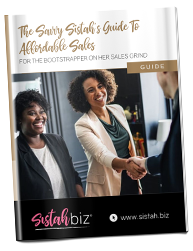How would you feel knowing that you’ve been overpaying in taxes?
Well, it may surprise you to learn that you probably are overpaying. Small businesses overpay their taxes by billions! Yes, I said billions! There are primary reasons why:
- Lack of knowledge and guidance
- Procrastination or accountability
- Fear of the IRS
But you can avoid some common pitfalls easily with these tasty tax tips. It’s time to step up your game and save some hard-earned money!
Making The Choice To Being Proactive with Your Taxes
It’s all about being proactive! When you have a small business, working on your taxes is not just about filing on April 15th. Instead, it’s about having an ongoing monthly and/or quarterly relationship with your tax professional to make sure your business is headed in the right direction all year round.
That is the secret to beating the IRS! The most expensive mistake a business owner can make is failing to plan. It isn’t about how much you make; it’s really about how you make it that helps determine your taxed income.
But in order to turn your taxes around, you need to put this knowledge into action. So, I’d like to share with you some of my favorite tasty tax tips.
#1 Tasty Tax Tip: Choose the correct business structure
One of the most important tax strategies out there is to start a business. But it has to be the correct business structure, which can save you thousands for years to come.
Setting up an LLC and then electing treatment as an S corporation may just give you the best of both worlds—the ease of administration of the LLC and the tax planning opportunities of the S corporation. If you take this route, then:
- From a legal standpoint, the state will recognize you as an LLC rather than an S corporation. Therefore, you will have the benefit of ease for administration—fewer filings, fewer forms, fewer formal meetings, and fewer record-keeping requirements. Since each state looks at these entities differently, these are most often case-by-case scenarios.
- From a tax perspective, your business will be treated as an S corporation, which will provide opportunities for tax planning to minimize the overall tax liability for your business.
- To the IRS, your business will exist separate and independent from you—the owner. Now the business entity can pay you and your partners’ wages and salaries because you are considered an employee of the company. The remaining income crosses over into your personal taxes and is taxed at a 10-15% rate instead of 22-27%, which is saving you from self-employment taxes that can range from 15.3-27% depending on income and situation.
#2 Tasty Tax Tip: Hire your children
Got kids? Hire them if they’re at least 7 years old! In exchange for their work (yes, emptying the trash cans and licking envelopes count), each child can earn up to $12,200 per year depending on how you hire and pay them. Consider it college funding!
You can still claim them as dependents on your taxes and write off their salaries as a business expense. Also, now that they are earning income, they can contribute to an IRA. They could use a Roth IRA later on to pay for college expenses or just to have an early start into their retirement account. The deduction also reduces your federal income and your self-employment tax bills.
But make sure to have everything in writing and legit just as if you were hiring a regular employee. For example, substantiate the following items:
- Job description (W4 or W9 form)
- Timesheet
- Check
- Account in child’s name
#3 Tasty Tax Tip: Take the 179 deduction
Fully deduct any equipment, furniture, and vehicles used in your business. One of the biggest assets for a small business owner is the Section 179 deduction, which allows you to depreciate the entire amount of an asset in one year instead of three, five, or seven years. For example, let’s say you buy a $2,000 photocopy machine for your business. In this case, you can use either regular depreciation, which means you would have to depreciate the item for five years, or you could use the 179 depreciation deduction and expense the entire $2,000 in the year of purchase. Ask your tax professional which route would work for you.
#4 Tasty Tax Tip: Get the mileage deduction
How many of you do a lot of driving for your business?
Tracking your mileage with Mile IQ or whatever app you use is great, but oftentimes using your actual car expenses will work as a higher deduction for you. Keep in mind that you must still also keep track of your mileage.
With the actual car expense method, you total up all your expenses. Basically, anything you use for your car is an expense. Here are a few examples:
- gas
- car repairs, washes, etc.
- car tools
- license fees
- registration fees
- lease payments
If you want to use the standard mileage rate to calculate vehicle expenses, you must choose it in the first year that you use the car for your business. In later years you can choose to use the standard mileage rate or switch to actual expenses.
Once you use actual expenses for the vehicle, you can’t switch back to standard mileage rate. You must continue using actual expenses as long as you use that car for business.
If you use the standard mileage rate, then you must have records of business versus personal miles driven. If you use actual expenses, you must have records of all expenses and must allocate those between business and personal use.
#5 Tasty Tax Tip: Work with a professional
A true professional will help you beyond the initial tax filing, going in-depth on your particular business situation to find the best ways of addressing your taxes. Without having the right professional to assist you, I can firmly say that you are overpaying in taxes. Your tax professional should be asking several questions in order to figure what deductions can apply to your business, and they should be able to explain the reasons why. If they aren’t, then you might want to consider getting help elsewhere.

Finally, Affordable Sales Techniques!
Download your free guide to affordable and practical ways to bring in more customers.
Sistahbiz Global Network © 2024 | Privacy Policy | Denver, CO 80249 |
Contact us at [email protected].

